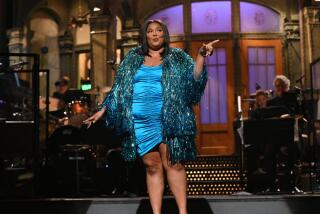Tackling race, one beer at a time
- Share via
President Obama’s biergarten moment at the White House on Thursday may have started out as a political stunt, but in the end it could become a model for the future of race relations in America.
I’m not talking about the “teachable moment” nonsense. Nor am I particularly impressed by the idea that people of different backgrounds should get together to talk about their backgrounds. What’s new here, and what I think might just stick, is the idea that people in conflict should sit down and throw back a few beers.
I’m not suggesting that Budweiser should sponsor a Middle East summit, but in the case of intra-national squabbles, which are essentially family squabbles -- Henry Louis Gates Jr. and James Crowley actually share distant Irish ancestors -- casual get-togethers might be more productive than formal “dialogue.”
As simple as that sounds, it’s actually heresy in the world of professional human relations, which is partial to statistics, mediation and the tit-for-tat airing of grievances. The other day, Yale University Press sent me the newly published report of President Clinton’s 1997 Initiative on Race. It’s full of really exciting bar graphs, testimony and legislative recommendations -- the stuff of dialogue. I don’t mean to be ungrateful or anything but, really, who’s going to read that? And if they did, what exactly would it change?
Maybe it’s because their paychecks depend on it, but there’s still an entire cast and crew of academic and activist “race experts” who insist that if Americans of different backgrounds sit down together, it should be to air their historical grievances, not just to drink a beer. I don’t agree. Is there anyone left who has not yet heard of slavery or Jim Crow or prejudice or discrimination? At this point in our history, progress is no longer about “educating” anyone except school kids about the past.
Nor will racial harmony be forged by race leaders and representatives speaking on behalf of millions of their fellow whatevers. In any racial “dialogue,” the black man (or the white woman) automatically becomes a representative for the whole kit and caboodle. He is obliged to read from a script that he didn’t necessarily write. By definition, to speak of race is to speak in generalizations. The individual is subsumed by the collective.
But isn’t that the source of racial incidents in the first place? Isn’t the very nature of prejudice the act of superimposing generally negative characteristics that one attributes to a group onto all members of that group? Isn’t racism itself the act of stripping away someone’s individuality?
Romantic as they were, the days in which collective action led to racial progress are long gone. The next step requires intimacy and individuals. We know that younger Americans are far more tolerant of each others’ differences than their elders. We think that it’s because they were raised in much more diverse environments. That tells us that it is everyday, routine contact with individuals of various backgrounds that helps erode the generalizations that serve as rationales for discrimination.
The lesson, then, is that we need to create more opportunities for mixed-race communication that isn’t obligatory and isn’t self-consciously about race. We’re more likely to understand how race is lived by listening to one person’s stories of his childhood and how he got his middle name, rather than studying the data on a cohort.
The White House was smart to lower expectations of Thursday’s meeting. Spokesman Robert Gibbs was right on target when he said that “one cold beer at one table here isn’t going to change massively the course of human history.”
On the other hand, a little more of what the president had in mind could go a long way to changing hearts and minds. “This is not a university seminar,” Obama said. “It is not a summit. It’s an attempt to have some personal interaction when an issue has become so hyped and so symbolic.”
Interracial beerfests aren’t going to solve our national dilemma like magic. But acknowledging that understanding between individuals trumps formal racial dialogue has to be a huge step forward.
--
grodriguez@latimescolumnists.com
More to Read
Sign up for Essential California
The most important California stories and recommendations in your inbox every morning.
You may occasionally receive promotional content from the Los Angeles Times.













